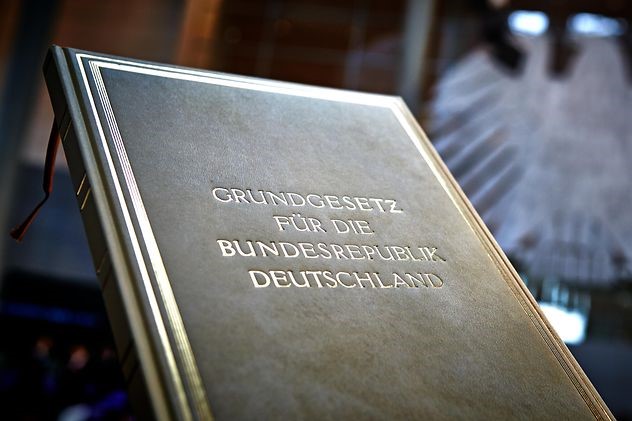The German constitution turns 70: Interview with Mathias Rohe in WDR ZeitZeichen
Today, on May 23rd 2019, the Federal Republic of Germany celebrates the 70th birthday of its constitution (Grundgesetz). In a 15-minute radio feature by WDR ZeitZeichen reporter Marfa Heimbach, EZIRE-director Mathias Rohe is one of the interviewees.
As a professor of law and islamic studies, he mainly talks about article 4 of the constitution, which guarantees religious freedom, about the (in-)compatibility of religious texts and the constitution, and uses its anniversary to point out that it was not self-sufficient.
GG Art.4
(1) Freedom of faith and of conscience, and freedom to profess a religious or philosophical creed, shall be inviolable.
This, according to Rohe, immediately settled the question of whether Islam belonged to Germany or not. From a legal perspective, the secular state did not differentiate between the many religions and ideologies one could follow. The debate was fed by the conjuration of a Christian-Jewish synthesis, which does not aim at appreciating the cultural contribution of Judaism for Germany and Europe, but is instrumentalized for the exclusion of other religions and world views – in the current discourse of Islam.
At the interface of law and religion, the compatibility of the respective religious scripture as an indicator of belonging to Germany is often discussed. If one reads the writings of the three great monotheistic religions precisely and literally, neither the Koran, nor the Torah or the Bible would stand up to this criterion, said Rohe.
Finally, Mathias Rohe calls for the 70th anniversary to be an occasion for reflection: The formation of the rule of law had to be newly pursued again and again, so that also in the future the free rule of law could still be spoken of as a “grandiose success model”.
